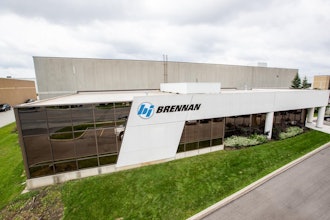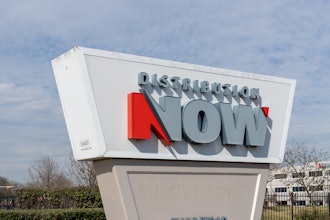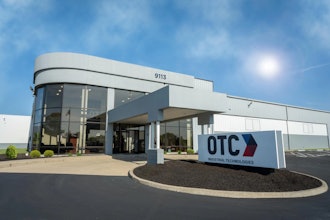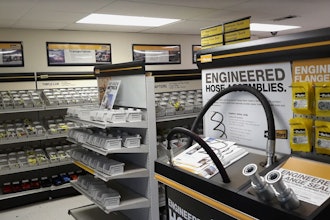
Whether they’ve flourished or faltered over the course of the pandemic, 2021 is likely to be the year many distribution businesses find themselves on the end of an M&A approach. In today’s uncertain climate, robustly tech-enabled, data-driven distribution businesses are especially attractive to buyers and stand best placed to maximize their company valuations, says Kevin McGirl.
The sale of the century?
Commentators across the board are predicting a surge in M&A activity across US industry this year, as growth companies take advantage of the opportunity to snap up struggling competitors, while others aiming for an exit route look to position themselves in the best light to be acquired.
The US distribution sector is no exception and currently finds itself in the midst of a historically high level of M&A activity. The last month of 2020 saw 34 deals involving distributors or manufacturers that sell through distribution — by far the busiest month of the year and this momentum has continued into this year with a number of high-profile deals proceeding in the first quarter.
What’s more, cash rich private equity firms are increasingly showing a keen interest in opportunities to acquire choice targets across the US manufacturing and distribution space.
READ MORE - ID's April Industrial Supply M&A Recap: Slowdown Before Acceleration?
The data dimension
When it comes to buyers assessing the credentials of potential acquisition targets in the sector as well as distributors who are seeking to ready themselves for sale, excellence in data provision is becoming an increasingly important differentiator.
Until relatively recently, IT could often be viewed as a cost to be managed and controlled whenever two organizations came together but now IT and digital capabilities can be a driving force behind a transaction. As researchers from McKinsey point out, “even when an acquisition centers around a company’s other attractive assets, digital capabilities can provide a significant source of additional deal value, particularly for legacy companies still struggling to catch up to digital natives and the more technologically advanced and entrenched players in their respective markets.”
We’re now seeing more deals get over the line. involving businesses where sales enablement technology solutions and robust data management are built-in to their day-to-day operations.
‘Win-win’ benefits for buyers and sellers alike
From an M&A perspective, the advantages of being data-driven work both ways. For businesses being acquired, the ability to demonstrate a solid data foundation within the organization can support and justify higher price valuations. Showing that your business has valuable data assets, which can be easily and swiftly integrated into an acquiring company can be a real differentiator when comparing investment prospects. When a company holds robust, solid customer data on accounts, purchase behaviours and key stakeholders it can also increase the likelihood of a deal making it over the line. The ability to demonstrate a data-driven approach can also bring immediate clarity to a prospect’s credentials, making due diligence efforts easier as buyers are able to reach swifter conclusions regarding key business fundamentals, such as the strength of customer relationships and how quickly these could be assimilated into the wider organisation.
For those businesses who are preparing to list for sale over the medium term, specifying sales enablement software in advance is a powerful way of ensuring sales reps are pushing the right products to maximize improved bottom-line profitability, which can be one of the strongest drivers of an enhanced valuation.
Buyers beware
Acquiring a business where sales enablement technology is embedded can also bring benefits for the buyer. Fundamentally, having access to a business’ key customer metrics can help busy execs understand untapped revenue potential when considering a new customer base and help them accelerate payback on their overall investment. In any acquisition there is usually a pressing need for the buying company to quickly get up to speed with new accounts and customer relationships and where this detail is immediately accessible via a sales enablement platform, it can make this process so much easier, particularly if the acquisition entails sales territories being merged or sales professionals taking on new accounts.
Deploying sales enablement technology during the due diligence process can quickly and easily help buyers understand what potential revenue uplift might occur through bringing on board a potential target. The acquisition of a robustly data-enabled business can also present the opportunity for a buyer to standardize systems and we have already seen a scenario where a smaller business using sales enablement software to do better business has effectively ‘upsold’ the solution to the wider buying company.
What’s more, once a merger has successfully completed, if the appropriate sales technology is in place, there can often be opportunities to cross-sell products to the clients of both organizations to increase overall ‘share of customer’ (for example, if a tool distributor acquires a safety specialist, the expanded product range of the two companies can be sold together as a complementary package).
Certainty in an unpredictable climate
While distribution businesses across the US will be hoping for a swift end to Covid restrictions, the months ahead promise to be characterized by continued  McGirl
McGirl
Kevin McGirl is president and co-founder of sales enablement software developer, sales-i. A highly experienced business strategist and market development specialist, he has been at the forefront of major trends in the software industry for more than 20 years and is an early pioneer of the Software as a Service (SaaS) business model.























